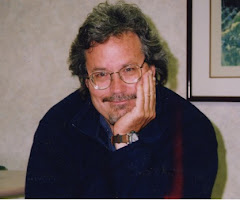I caught most of the lectures.
Inigo Montoya: Let me 'splain.I can hardly put a percentage to it, but my impression is that a good number of attendees are there for social reasons. While I was there expressly, ahem, as a Lutheran monk and therefore did not much partake, my impression was that the Lutheran liturgical partying each evening was the highlight of the week for many. My practice at lunch was to actually engage the table of strangers--who were just trying to innocently partake of their midday collations--in conversations about what had actually been said at the morning's lectures. Many rose to the bait. But I was often disappointed at the level of insight in the responses. Perhaps the best conversation I had was with pastor Tim May, where we compared the implications of a David Scaer lecture with those of the British academic Simon Gathercole. And oh, is that a toncture that Peter Scaer is wearing?
[pause]
Inigo Montoya: No, there is too much. Let me sum up.
There were many allusions by the speakers to the varied groups who deny the atonement. Perhaps the best quote I heard characterizing these theologies is from Richard Neibuhr, to wit:
"A God without wrath brought men and women without sin into a Kingdom without judgment through the ministrations of a Christ without the Cross."This sort of describes the continuum of critics of the atonement. There are those who want to keep the doctrine in some form (One must assume because the doctrine keeps being bumped into in scripture, eh?) but want to get rid of, well, the atoning part. So Gese, who suggests a doctrine of atonement through representation: the priest identifying with the scapegoat in its death. There is no substitution per se, just connection, whatever that may mean. At the other end of the spectrum of denial seem to be those who just don't care what scripture says, they don't like all of this blood and death nonsense, let's just all get along, can't we? Much of the problem here is that guilt is not a theme of this theology. The theme could better be described as "enlightenment". Be all that you can be. And Jesus is a reasonably good example, should you need one.
The best of the lecturers--Gathercole, Gieschen, Nordling--had me digging around in my Bible as they spoke, following their many Biblical references. Two of the lecturers--Nordling and Gathercole--also brought in themes from classical literature. Nordling spoke at length on the themes of slave redemption and "sacral manumission", Gathercole on parallels between Paul's atonement language in the NT and classical language on themes of vicarious death. I spoke with Dr. Gathercole after his lecture, apologetically noting to him that as a layman I wanted to be sure I understood his main point. Was he saying that Paul knew his audience and therefore intentionally drew from pagan tradition and word-associations in writing about Christ's atonement? Yes, that was indeed his point. Gathercole has also published a book on the Gospel of Judas and is currently at work on a conservative commentary on the Gospel of Thomas. Both of his works are meant to dull the edges of the academic DaVinci Code-style arguments that these extra-canonical, coptic-source texts be given any weight at all up against the canon.
Hey, there was a lot said in four days!


No comments:
Post a Comment